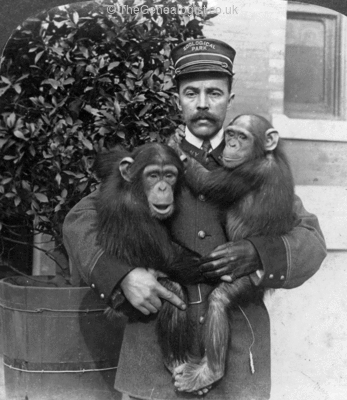I’ve heard that some of Ancestry’s collections that were previously available as image-only on the site, have been indexed by the Ancestry World Archives Project (AWAP) a collaborative effort involving thousands of people around the world keying digital records to make them free for everyone.
The two in question are:
Middlesex County Records – Calendar of the Sessions Books 1690 – 1709
and
Oxford – Brasenose College Register 1509 – 1909
Established in 1509, Brasenose College is among the older colleges of Oxford University. The College Register lists thousands of people who passed through Brasenose from 1509 through 1909. The Register has been compiled from a variety of sources, including admission registers, buttery books (lists of payments by students for food and drink), lists of college officers and administrators, inscriptions on college monuments, newspaper clippings, lists of sporting groups, directories, and numerous biographical resources.
The Register is divided into chapters that categorize the college member’s involvement at the institution (e.g., visitors, principals, fellows, officers, scholars, etc.). Details included vary from chapter to chapter, but typically include the name and years of attendance, admission, or degree. Some death dates will be provided as well. Several pages of name changes appear in the book, and it also includes an index of names contained in the Register at the back.
Within the pages of the register, you’ll find 400 years of Brasenose collegians, from sportsmen to lecturers, including:
· Henry Addington (Lord Sidmouth), Prime Minister of the United Kingdom: Henry Addington arrived at Brasenose in January 1774 at the age of sixteen, and took his B.A. degree in 1778.
· Elias Ashmole, founder of the Ashmolean Museum: Ashmole’s name appears in the accounts of Brasenose College in 1644. He studied mathematics and physics but did not take a degree.
· John Clavell, highwayman and playwright: John Clavell arrived at Brasenose in 1619 but did not take a degree. It appears that his criminal career began here, for in April 1621 he was granted a pardon for stealing plate from the College.
· William Webb Ellis, reputed founder of Rugby Football
· Arthur Evans, archaeologist: Sir Arthur Evans was the first undergraduate to take archaeology as a special subject in the Modern History School at Oxford. He came up to Brasenose in 1870 and took a first class degree in 1874.
· Thomas Traherne, poet: The son of a shoemaker, Thomas Traherne came to Brasenose at the age of fifteen in 1653 and took his B.A. in 1656.
· F.E. Weatherly, songwriter: Frederic Edward Weatherly, writer of over 3,000 songs including the famous ‘Danny Boy’ lyrics from Londonderry Air, came to Brasenose from Hereford Cathedral School in 1867, and was awarded a B.A. in Classics in 1871.
The other collection to now be indexed is:
Middlesex County Records – Calendar of the Sessions Books 1690 – 1709
This book, originally published in 1905, is a calendar of the Sessions books for Middlesex County, 1690–1709. “Sessions†refers to court sessions, which dealt with a broad range of issues. This calendar serves as an index that notes volumes and pages where items can be found in the Session books at the London Metropolitan Archives.
What You Can Find in the Records
Beginning at the start of the reign of William III and Mary II, this two-decade collection gives unique insights into the times and the day-to-day workings of the county. Many of the entries deal with provisions for the poor, with references to individuals in many cases. Examples include wounded soldiers and sailors, or women who had been deserted by their husbands. There are frequent entries referring to the “settlement†of individuals between parishes. Right of settlement was an important issue in determining which parish was responsible for poor relief for an individual.
The calendar notes punishments for crimes, which may involve sentencing to imprisonment or, more commonly, fines, time in a pillory, or whippings.
The court heard cases on the parentage of illegitimate children and requests for terminating apprenticeships. Appointments to public positions are mentioned, and you’ll find entries regarding payments for work done on roads and other civic improvements.
Nonconformists needed licenses for assemblies of more than five persons, and you can find memorandums regarding these licenses among the records. Some Catholics were listed as “suspected papists†who had refused to take oaths of allegiance to the king and queen.
Licenses were also required for alehouses, and there are complaints about alehouses and suppression or revocation of licenses where owners had “suffered visits from prostitutes†or otherwise run afoul of the prevailing laws.
References to the military can include soldiers seeking relief, debtors being released from prison to serve in the army or navy, and relief for the spouses of soldiers and sailors.
Beyond the names of individuals, you’ll gain insights into the times through legislation aimed at bettering communities and conditions at institutions such as prisons.
So you may want to head over to Ancestry.co.uk to take a look at these newly indexed records.
Disclosure: The links in this post are compensated affiliate links that may mean I get compensated by Ancestry.co.uk should you purchase a subscription from them.
Like this:
Like Loading...
 GREAT-VALUE 1 MONTH SUBSCRIPTION – £9.95 FOR UNLIMITED ACCESS
GREAT-VALUE 1 MONTH SUBSCRIPTION – £9.95 FOR UNLIMITED ACCESS Send to Kindle
Send to Kindle










